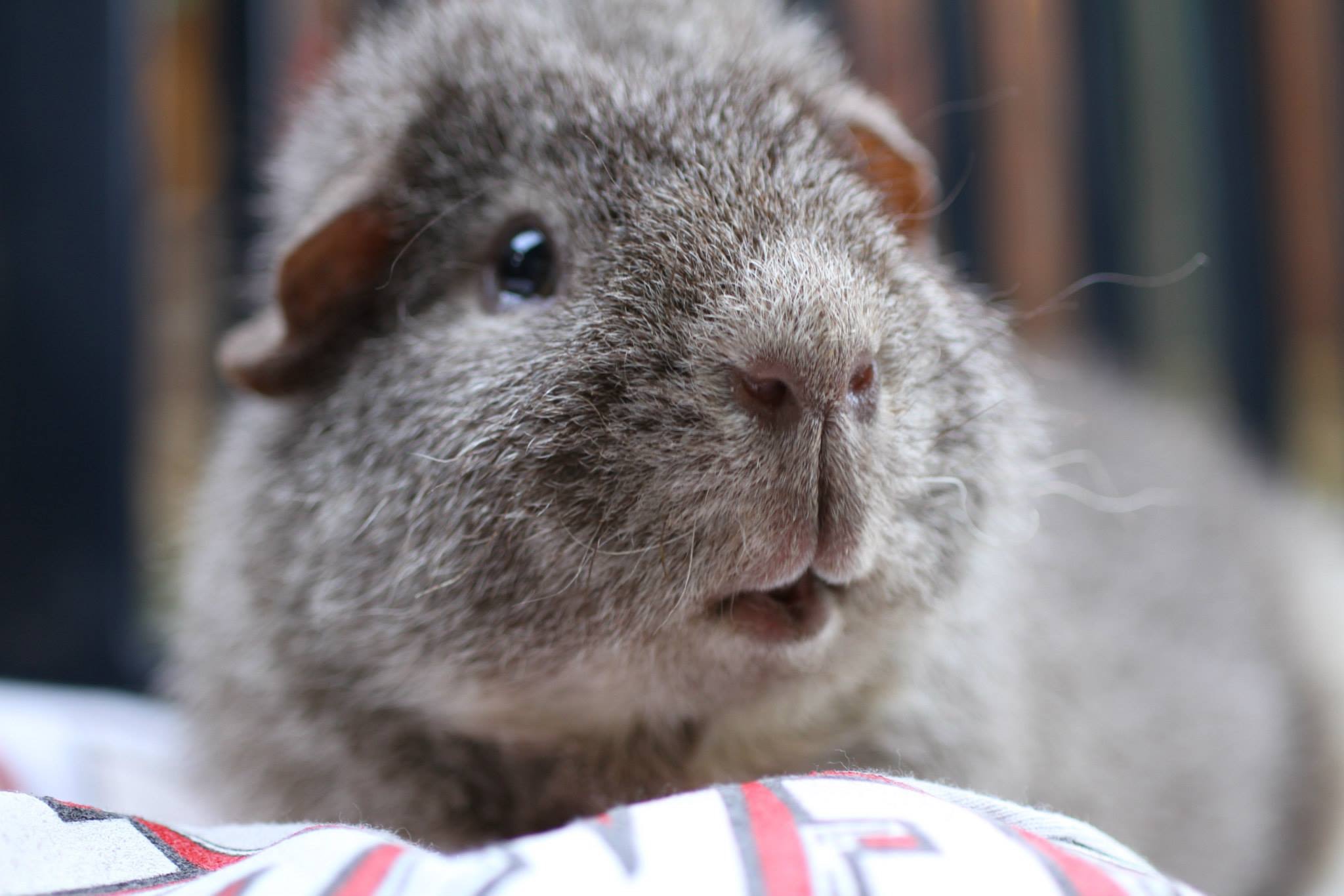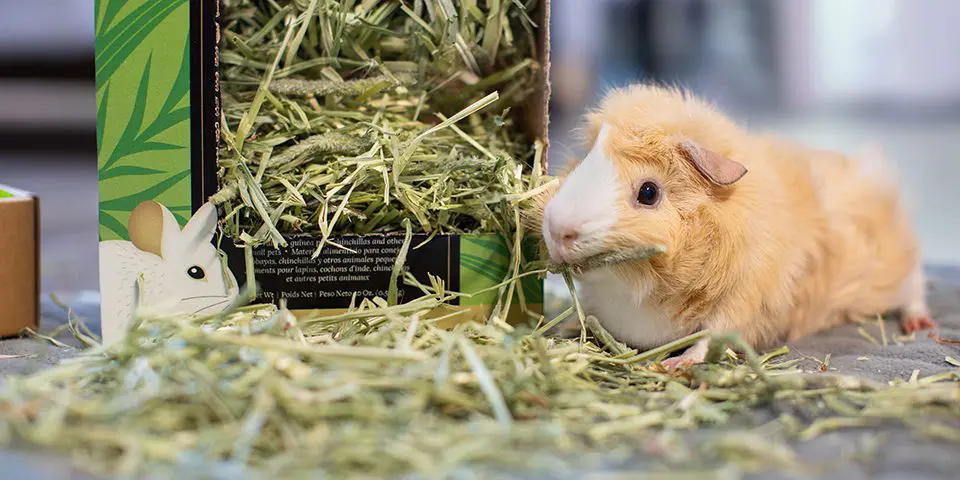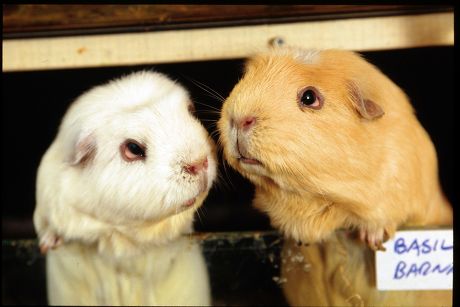Guinea pigs are adorable and social animals that make great pets. They are known for their friendly and affectionate nature, making them popular among pet owners. However, like any other living creature, guinea pigs can also fall ill. As a responsible pet owner, it is important to be aware of the signs and symptoms of a sick guinea pig and know how to provide proper care and treatment. In this article, we will discuss the various causes, symptoms, treatment, and prevention of illness in guinea pigs.
Seemore: Can Guinea Pigs Eat Asparagus? – A Complete Guide
Contents
Causes of Illness in Guinea Pigs

There are several factors that can contribute to a guinea pig falling ill. Some of the most common causes include:
Bacterial Infections
Bacterial infections are one of the most common causes of illness in guinea pigs. These infections can be caused by different types of bacteria, such as Streptococcus, Staphylococcus, and E. coli. Bacterial infections can affect different parts of the body, including the respiratory system, digestive system, and skin. These infections can be transmitted through contact with contaminated objects or through direct contact with an infected guinea pig.
Viral Infections
Viral infections are another common cause of illness in guinea pigs. These infections can be caused by different types of viruses, such as influenza, herpes, and parvovirus. Like bacterial infections, viral infections can also affect different parts of the body, including the respiratory system, digestive system, and skin. These infections can be transmitted through contact with an infected guinea pig or through exposure to contaminated objects.
Fungal Infections
Fungal infections are less common in guinea pigs compared to bacterial and viral infections. However, they can still occur and can be quite serious if left untreated. Fungal infections can affect the skin, ears, and respiratory system of guinea pigs. These infections can be transmitted through contact with contaminated objects or through direct contact with an infected guinea pig.
Parasitic Infections
Parasitic infections are also a common cause of illness in guinea pigs. These infections can be caused by different types of parasites, such as mites, lice, and worms. These parasites can affect the skin, ears, and digestive system of guinea pigs. They can be transmitted through contact with an infected guinea pig or through exposure to contaminated objects.
Environmental Factors
The environment in which a guinea pig lives can also play a role in their overall health. Poor living conditions, such as overcrowding, inadequate ventilation, and dirty cages, can lead to various health problems in guinea pigs. Additionally, exposure to extreme temperatures, drafts, and chemicals can also make them more susceptible to illness.
Dietary Deficiencies
A well-balanced diet is essential for the overall health and well-being of guinea pigs. A lack of certain nutrients, such as vitamin C, can weaken their immune system and make them more prone to illness. It is important to provide guinea pigs with a diet that includes fresh vegetables, hay, and a good quality pellet food to ensure they are getting all the necessary nutrients.
Symptoms of a Sick Guinea Pig

It is important to keep a close eye on your guinea pig’s behavior and appearance to spot any signs of illness early on. Some of the most common symptoms of a sick guinea pig include:
Lethargy
If your usually active and playful guinea pig suddenly becomes lethargic and spends most of their time sleeping, it could be a sign of illness. Guinea pigs are energetic animals, and any sudden change in their activity level should be taken seriously.
Loss of Appetite
A loss of appetite is another common symptom of a sick guinea pig. If your guinea pig is not eating or drinking as much as usual, it could be a sign of an underlying health issue. It is important to monitor their food and water intake closely and seek veterinary care if the problem persists.
Weight Loss
Weight loss is a significant sign of illness in guinea pigs. If you notice that your guinea pig has lost weight without any changes in their diet or exercise routine, it could be due to an underlying health issue. A sudden change in weight should not be ignored and should be addressed by a veterinarian.
Diarrhea
Diarrhea is a common symptom of gastrointestinal issues in guinea pigs. It can be caused by bacterial or viral infections, dietary changes, or stress. If your guinea pig has loose or watery stools, it is important to seek veterinary care as soon as possible.
Constipation
On the other hand, constipation can also be a sign of illness in guinea pigs. If your guinea pig is straining to defecate or has not passed stool in more than 24 hours, it could be a sign of an underlying health issue. Constipation can be caused by a lack of fiber in their diet, dehydration, or an obstruction in their digestive system.
Sneezing, Coughing, and Nasal/Eye Discharge
Respiratory infections are quite common in guinea pigs and can cause symptoms such as sneezing, coughing, and nasal or eye discharge. These infections can be caused by bacteria, viruses, or environmental factors. If your guinea pig is exhibiting any of these symptoms, it is important to seek veterinary care immediately.
Skin Problems
Guinea pigs are prone to various skin problems, such as mites, fungal infections, and allergies. If you notice any redness, scabs, or hair loss on your guinea pig’s skin, it could be a sign of an underlying health issue. It is important to seek veterinary care to determine the cause and provide proper treatment.
Dental Problems
Dental problems are common in guinea pigs, especially if their diet lacks enough fiber. Overgrown teeth, broken teeth, or abscesses can cause pain and discomfort for your guinea pig. If you notice any changes in their eating habits or see drooling, it could be a sign of dental issues.
Treatment for Sick Guinea Pigs

The treatment for a sick guinea pig will depend on the underlying cause of the illness. It is crucial to seek veterinary care as soon as you notice any signs of illness in your guinea pig. Some common treatments for various illnesses in guinea pigs include:
Antibiotics
Antibiotics are commonly prescribed to treat bacterial infections in guinea pigs. These medications work by killing the bacteria causing the infection. It is important to follow the prescribed dosage and complete the full course of antibiotics to ensure the infection is completely eradicated.
Antiviral medications may be prescribed to treat viral infections in guinea pigs. These medications work by inhibiting the replication of the virus, giving the guinea pig’s immune system time to fight off the infection. However, antivirals are not always effective, and supportive care may be necessary to help the guinea pig recover.
Antifungals
Fungal infections can be treated with antifungal medications, such as topical creams or oral medications. These medications work by killing the fungi causing the infection. It is important to follow the prescribed dosage and complete the full course of treatment to prevent the infection from recurring.
Parasiticides
Parasitic infections can be treated with parasiticides, which are medications that kill parasites. These medications come in different forms, such as topical treatments, oral medications, or injections. It is important to follow the instructions of your veterinarian when administering parasiticides to ensure proper treatment.
Environmental Changes
If environmental factors are causing illness in your guinea pig, it is important to make necessary changes to their living conditions. This may include providing a clean and spacious cage, maintaining proper ventilation, and avoiding exposure to extreme temperatures or chemicals.
Dietary Changes
Dietary deficiencies can be addressed by making changes to your guinea pig’s diet. It is important to provide a well-balanced diet that includes fresh vegetables, hay, and a good quality pellet food. In some cases, your veterinarian may also recommend supplements to ensure your guinea pig is getting all the necessary nutrients.
Prevention of Illness in Guinea Pigs

As the saying goes, prevention is better than cure. There are several things that you can do to prevent illness in your guinea pig and keep them healthy and happy:
- Regular veterinary check-ups: It is important to take your guinea pig for regular check-ups with a veterinarian who is knowledgeable about small animals. This will help detect any health issues early on and ensure your guinea pig receives proper care and treatment.
- Proper hygiene: Keeping your guinea pig’s living area clean and hygienic is crucial in preventing illness. Regularly clean their cage, food and water bowls, and toys to prevent the growth of bacteria and parasites.
- A balanced diet: Providing a well-balanced diet is essential for the overall health and well-being of guinea pigs. Make sure to include fresh vegetables, hay, and a good quality pellet food in their diet to ensure they are getting all the necessary nutrients.
- Avoid overcrowding: Guinea pigs are social animals, but they also need their own space. Overcrowding can lead to stress and increase the risk of illness. Make sure to provide enough space for each guinea pig in their enclosure.
- Quarantine new pets: If you plan on introducing a new guinea pig to your existing ones, it is important to quarantine them for at least two weeks. This will help prevent the spread of any potential illnesses.
- Regular grooming: Regularly grooming your guinea pig can help prevent skin problems and detect any health issues early on. It also provides an opportunity to bond with your pet.
Conclusion

Guinea pigs are wonderful pets that require proper care and attention to stay healthy. As a responsible pet owner, it is important to be aware of the signs and symptoms of a sick guinea pig and know how to provide proper treatment. By understanding the various causes, symptoms, and treatments of illness in guinea pigs, as well as taking preventive measures, you can ensure your furry friend stays happy and healthy for years to come. Remember, if you notice any changes in your guinea pig’s behavior or appearance, do not hesitate to seek veterinary care.
